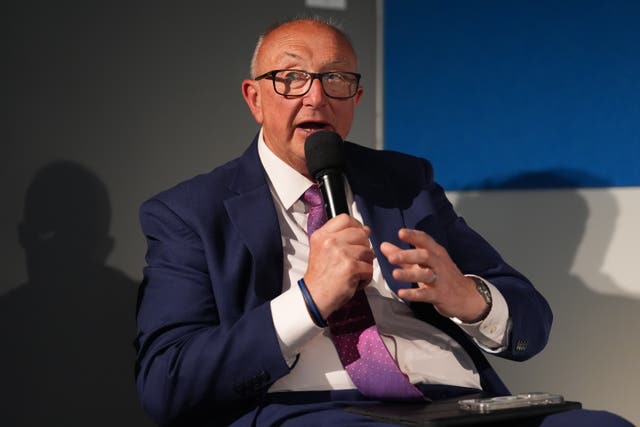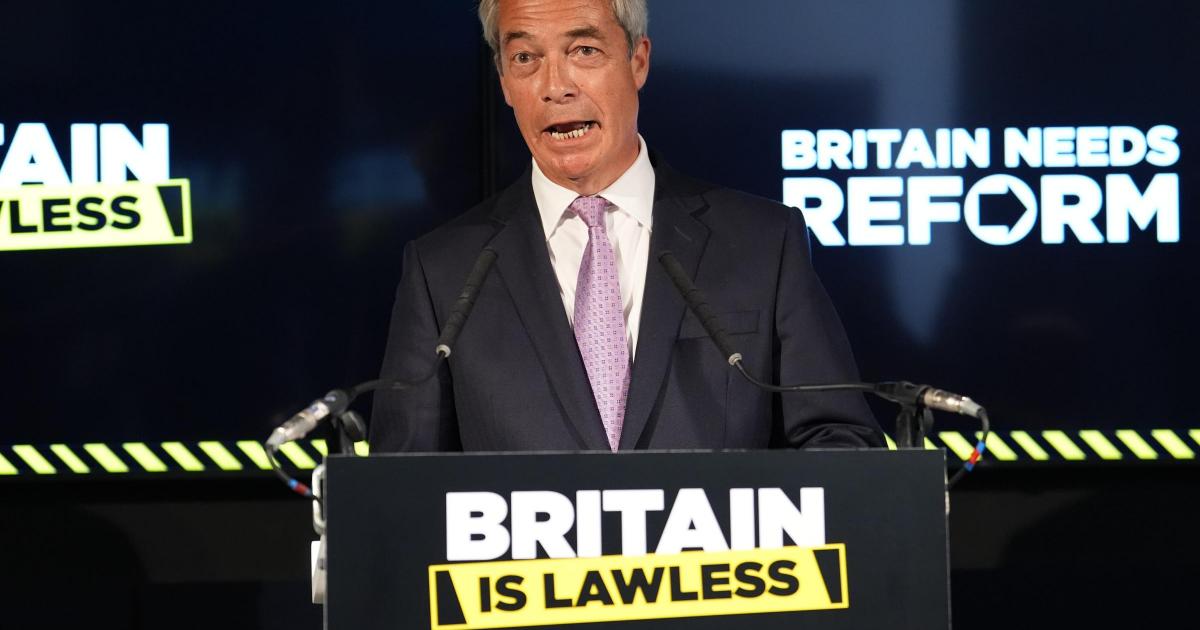Former party chairman Zia Yusuf said the Act, intended to reduce online harm, did “absolutely nothing to protect children” but worked to “suppress freedom of speech” and “force social media companies to censor anti-government speech”.
Addressing a press conference at Reform’s headquarters in Westminster, Mr Yusuf said: “We will repeal this Act as one of the first things a Reform government does.”
Under rules that came into effect on July 25, online platforms such as social media sites and search engines must take steps to prevent children accessing harmful content such as pornography or material that encourages suicide.
This includes introducing age verification for websites and ensuring algorithms do not work to harm children by, for example, pushing such content towards them when online.
Failing to comply with the new rules could incur fines of up to £18 million or 10% of a firm’s global turnover, whichever is greater.
But Mr Yusuf said greater take-up of VPN services, which can enable internet users to circumvent the new rules, showed the legislation did not protect children and in fact made them less safe.
He said: “Sending all of these kids onto VPNs is a far worse situation, and sends them much closer to the dark web, where the real dangers lie.”
He also criticised sections of the legislation that allow ministers to direct regulator Ofcom to modify its rules setting out how companies can comply with requirements to crack down on illegal or harmful content, saying it was “the sort of thing that I think (Chinese president) Xi Jinping himself would blush at the concept of”.
During the press conference, Reform leader Nigel Farage acknowledged that his party did not have “a perfect answer” for what could replace the Online Safety Act, but said his party had “more access to some of the best tech brains, not just in the country but in the world” and would “make a much better job of it”.

A Labour Party spokesperson said repealing the Online Safety Act would “scrap vital protections for young people online and recklessly open the floodgates to kids being exposed to extreme digital content”.
They added: “Reform offers anger but no answers. They won’t say what they would do instead to keep people safe. Farage would give children access to material on suicide, self-harm, eating disorders and pornography. He is simply not serious.”
Andy Burrows, chief executive of the Molly Rose Foundation, said scrapping the Act “would be a retrograde move that would not only put children at greater risk but is out of step with the mood of the public”.
He added: “The Online Safety Act is an important building block that needs strengthening and decisive action to do this would be cheered on by parents and grandparents up and down the country.”
Reform’s announcement came during a press conference on crime, at which Mr Farage unveiled retired Metropolitan Police detective Colin Sutton as an adviser on police and crime.
Mr Sutton, who retired from the police in 2011, led the investigations into serial killer Levi Bellfield and serial rapist Delroy Grant during a 30-year career.
He is expected to stand for Reform at the next general election, and said he would push for Reform to commit to opening at least 300 public-facing police buildings along with recruiting 30,000 new officers.
Mr Sutton said he would also back getting rid of diversity initiatives in the police, saying: “If you need some help, if you need police officers, if you need help quickly, do you actually care who comes through the door?”
The event was also attended by American conservative media pundit Ann Coulter.


